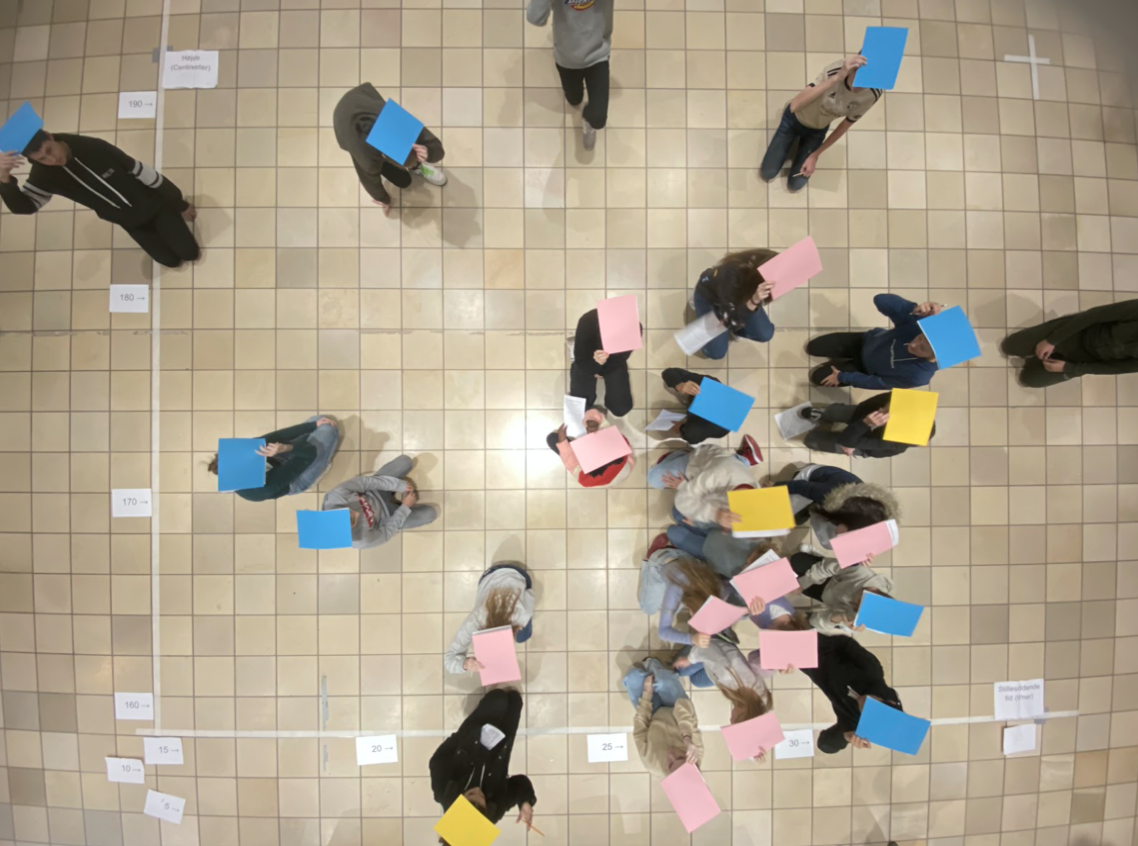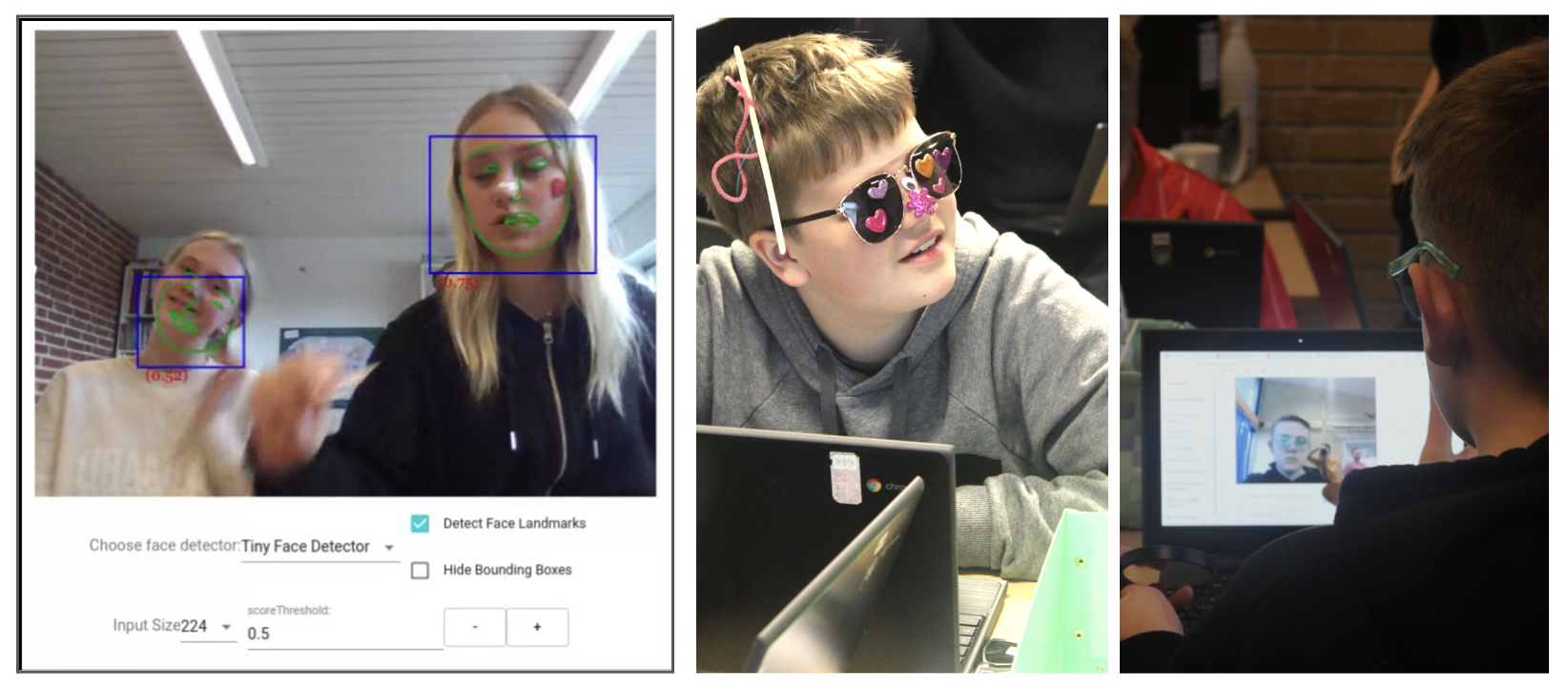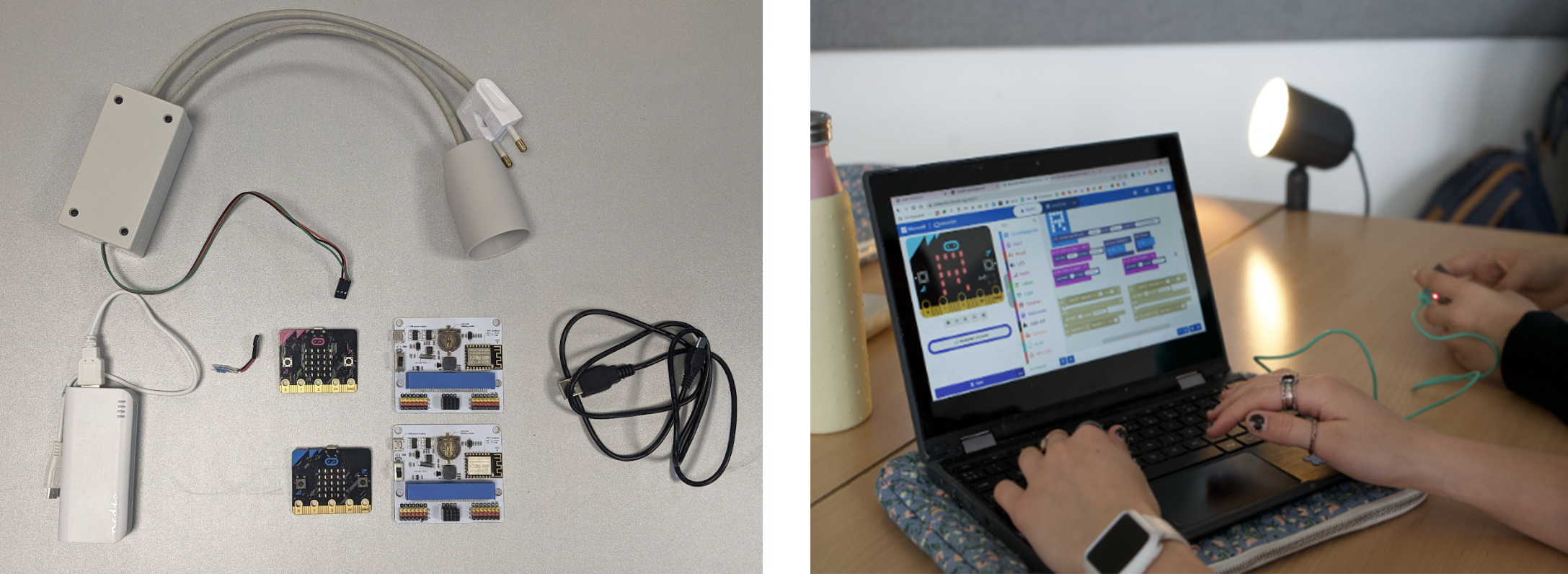
Computational Empowerment for Emerging Technologies in Education (CEED) is a research project that focused on exploring and building new practices of computational empowerment for emerging technologies in Danish secondary education. CEED addresses the core question: How do we empower coming generations to understand the complexity and impact of digital technology and become co-creators of our future digitalised society? While new technologies are rapidly transforming our everyday lives, investment in educating children about their impact and potentials has just begun, prioritizing a focus on coding skills and computational thinking over quality of life, agency and democracy. Based on ten years of research into digital design and making in education, CEED will address the next societal and educational challenge – of emerging technologies (IoT and AI/ML) – and their role in the digitalisation of society. CEED extends the current focus on computational thinking in education through a design-oriented approach that brings together humanistic, participatory and technical perspectives to develop a theoretical, technical and methodological framework for Computational Empowerment. The framework is developed through an integrated focus on ‘digital design literacy’, technological materials and toolkits, and human-centred principles for learning and designing with emerging technologies in secondary education. In this way, the research contributed to developing sustainable best-practices at local and national level, while contributing to state-of-the-art in a global research community.
My sub-project was oriented towards the development of practices and educational principles for designing and learning with emerging technologies. Specifically, this project explores how to understand and approach emerging technologies from a human-centred perspective that enable children and educators to actively engage with these in secondary education. It addresses the need for understanding both the computational premises and qualities for AI and IoT and their integral relation to everyday and automated decision-making, personal and societal impact.
Within this project, we developed a special issue on Computational Empowerment and Children in the International Journal of Child Computer Interaction.
In the following, I will describe some example interventions of the project. Detailed descriptions of the learning activities can also be downloaded here.
Facial recognition Intervention
We focused on on exploring educational strategies based on a fiction-based approach to teach about the technical aspects and socio-technical implications of facial recognition technologies. In one of the sessions, the students were challenged to avoid detection by Earth’s facial recognition system while returning to their time travel ship. They designed facial disguises, formed hypotheses about how facial recognition technologies detect faces, and explored these ideas using the application FaceAPI.js. A “secret guide” provided technical support to refine their designs. Further, students created video tutorials of their strategies and ended the session with drawings and discussions reflecting on what they learned about how facial recognition technologie work and their real-world implications.

Orbit IoT Kit
We developed the Orbit IoT Kit, a micro:bit-based toolkit that supports teachers in IoT activities. The kit combines the microcontroller with relays and a web application, enabling students to connect everyday objects to the Internet and visualize the devices’ data flow. Based on an intervention in a secondary school with three teachers and 20 students of ages 12-13, our results indicate that the design and features of the kit – internet communication and data visualization – support teachers to engage students in learning about a holistic perspective of IoT.

Related publications:
Marie-Monique Schaper, Rachel Charlotte Smith, Ole Sejer Iversen, Christopher Frauenberger, Netta Iivari, Anja Zeising, Mike Tissenbaum, Elizabeth Marie Bonsignore and Jason Yip. (2023). Computational empowerment and children: Expanding empowerment, agency and participation in computation. International Journal of Child-Computer Interaction. https://doi.org/10.1016/j.ijcci.2023.100617
Rachel Charlotte Smith, Marie-Monique Schaper, Mariana Aki Tamashiro, Maarten Van Mechelen, Marianna Graves Petersen and Ole Sejer Iversen (2023). A research agenda for computational empowerment for emerging technology education. International Journal of Child-Computer Interaction. https://doi.org/10.1016/j.ijcci.2023.100616
Marie-Monique Schaper, Rachel Charlotte Smith, Maarten Van Mechelen, Mariana Aki Tamashiro, and Ole Sejer Iversen. (2023). Co-designing sustainable practices for emerging technologies education. International Journal of Technolology and Design Education. (2023). https://doi.org/10.1007/s10798-023-09857-3
Mariana Aki Tamashiro, Marie-Monique Schaper, Ane Jensen, Rune Heick, Brian Danielsen, Maarten Van Mechelen, Kasper Løvborg Jensen, Rachel Charlotte Smith, and Ole Sejer Iversen. (2023). Teaching technical and societal aspects of IoT – A case study using the Orbit IoT Kit. In Proceedings of the 2023 ACM Designing Interactive Systems Conference (DIS ’23). Association for Computing Machinery, New York, NY, USA, 1236–1247. https://doi.org/10.1145/3563657.3596092
Marie-Monique Schaper, Mariana Aki Tamashiro, Rachel Charlotte Smith, Maarten Van Mechelen, and Ole Sejer Iversen. (2023). Five Design Recommendations for Teaching Teenagers’ about Artificial Intelligence and Machine Learning. In Proceedings of the 22nd Annual ACM Interaction Design and Children Conference (IDC ’23). Association for Computing Machinery, New York, NY, USA, 298–309. https://doi.org/10.1145/3585088.3589366
Maarten Van Mechelen, Rachel Charlotte Smith, Marie-Monique Schaper, Mariana Aki Tamashiro, Karl-Emil Kjær Bilstrup, Mille Skovhus Lunding, Marianne Graves Petersen, and Ole Sejer Iversen. (2023). Emerging Technologies in K–12 Education: A Future HCI Research Agenda. ACM Trans. Comput.-Hum. Interact. 30, 3, Article 47. https://doi.org/10.1145/3569897
Marie-Monique Schaper and Aurelio Ruiz Garcia. (2023). Three recommendations to engage At-Risk Students in Critical Reflection on Intelligent Technologies through Remote Learning. In Extended Abstracts of the 2023 CHI Conference on Human Factors in Computing Systems (CHI EA ’23). ACM, New York, NY, USA. https://doi.org/10.1145/3544549.3573862
Marie-Monique Schaper, Rachel Charlotte Smith, Mariana Aki Tamashiro, Maarten Van Mechelen, Mille Skovhus Lunding, Karl-Emil Kjæer Bilstrup, Magnus Høholt Kaspersen, Kasper Løvborg Jensen, Marianne Graves Petersen, Ole Sejer Iversen. (2022). Computational empowerment in practice: Scaffolding teenagers’ learning about emerging technologies and their ethical and societal impact, International Journal of Child-Computer Interaction,
Volume 34, https://doi.org/10.1016/j.ijcci.2022.100537
Maarten Van Mechelen, Rachel Charlotte Smith, Marie-Monique Schaper, Mariana Aki Tamashiro, Karl-Emil Kjær Bilstrup, Mille Skovhus Lunding, Marianne Graves Petersen, and Ole Sejer Iversen. 2022. Emerging Technologies in K–12 Education: A Future HCI Research Agenda. ACM Trans. Comput.-Hum. Interact. Just Accepted (October 2022). https://doi.org/10.1145/3569897
Karl-Emil Kjær Bilstrup, Magnus Høholt Kaspersen, Mille Skovhus Lunding, Marie-Monique Schaper, Maarten Van Mechelen, Mariana Aki Tamashiro, Rachel Charlotte Smith, Ole Sejer Iversen, and Marianne Graves Petersen. 2022. Supporting Critical Data Literacy in K-9 Education: Three Principles for Enriching Pupils’ Relationship to Data. In Interaction Design and Children (IDC ’22). ACM, New York, NY, USA, 225–236. https://doi.org/10.1145/3501712.3530783
Mariana Aki Tamashiro, Maarten Van Mechelen, Marie-Monique Schaper, Ole Sejer Iversen. (2021). Introducing Teenagers to Machine Learning through Design Fiction: An Exploratory Case Study. Proceedings of the International Conference on Interaction Design and Children (IDC’21). 71–475. DOI:https://doi.org/10.1145/3459990.3465193
Vicky Charisi, Laura Malinverni, Elisa Rubegni, and Marie-Monique Schaper. (2020). Empowering Children’s Critical Reflections on AI, Robotics and Other Intelligent Technologies. In Proceedings of the 11th Nordic Conference on Human-Computer Interaction: Shaping Experiences, Shaping Society (NordiCHI ’20). Association for Computing Machinery, New York, NY, USA, Article 128, 1–4. DOI:https://doi.org/10.1145/3419249.3420090